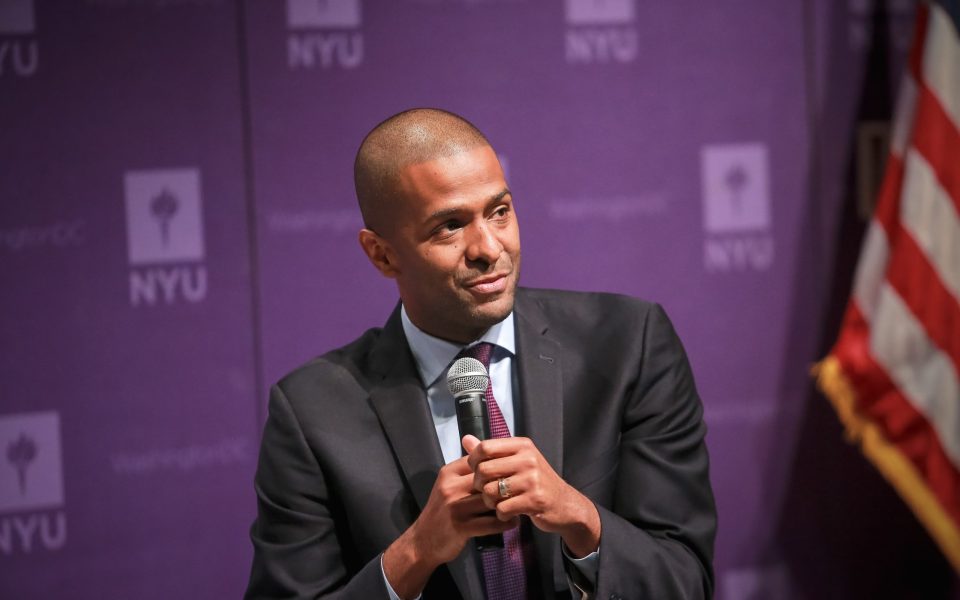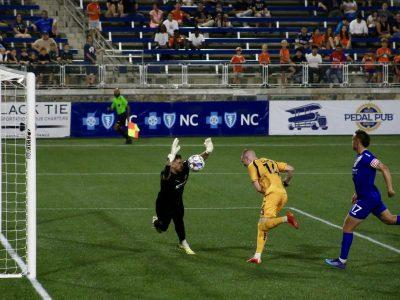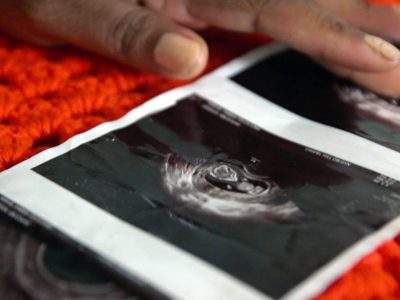On Saturday, Greensboro Bound will stream a free virtual conversation between author Isaac Bailey and CNN commentator and attorney Bakari Sellers as part of the 2021 book festival. In anticipation of the event, Triad City Beat got to talk to Sellers about his current role as an attorney for the family of Andrew Brown Jr. as well as his life after serving as a state representative in South Carolina. Learn more about the Greensboro Bound Festival, which starts Thursday, at greensborobound.com. (Featured photo by John R. Walder, Carbon Thread Agency)
You’re currently working to represent the family of Andrew Brown Jr., a Black man who was shot and killed by law enforcement in Elizabeth City on April 21. How did you get that job and what has it been like?
I’m a lawyer by trade. A lot of people forget that, because of my work on CNN and in politics. But doing civil rights work around the country is something I’ve always enjoyed doing. So I got a call from Elizabeth City, and the family reached out. Part of the family was already working with Harry Daniels and Ben Crump and it’s just a remarkable group of lawyers that are coming together. We’re trying to do the best we can. Right now, we’re trying to seek transparency in the investigation and find out what happened which is proving to be way more difficult than I’ve been a part of in any other case. And then we’re trying to get justice both civilly and criminally for Andrew Brown and his family.
What do you want local activists, particularly white people, to know about being engaged in the movement right now?
I think we find ourselves cutting through all the noise and chatter, Republicans and Democrats, white and Black, because many people find it patently absurd that we don’t have any transparency…. [T]he law in North Carolina is so poorly written that we don’t even have access to the video. And I think we’ve been able to shine a light on a lot of the systematic injustices that we see and how difficult it is for lawyers even with some national recognition to navigate these systems. Imagine how difficult it is be Joe Blow to navigate these systems. I think that the example that you’re seeing is people saying, This just isn’t right. And that’s regardless of who Andrew Brown was…. We’re talking about the system that killed him and the system that’s not allowing us to find out what happened to him.
What sort of changes do you think need to happen locally and nationally to change this?
Locally, I think you see the distrust that is readily apparent between local individuals and county officials…. We are diametrically opposed at this point with the sheriff’s office on what happened in the leadup to Andrew Brown and ultimately his life being taken. However, we don’t have any issue and we’re appreciative of him on the backend for example, even asking for the video to be released and releasing all of the names of the individuals and his policies. So there are efforts being made on certain levels. But you have many entities like the district attorney who wants this to be his show.
On the state level, these laws are terrible. I think the body-camera law is a perfect example of people living in a glass house in Raleigh without any real-life or practical experience, and putting the onus on families. For example: You lose a loved one and your family has to appeal to court to see the video? That’s just absurd.
Federally, there is nowhere written in any law in the country that you go from having a warrant to a death penalty and I think it shows that the George Floyd Justice and Policing Act is needed now more than ever.
Can you tell me a little about the kind of person Andrew Brown Jr. was?
One of the things as a lawyer in this case is you try to make sure that his life matters in death, that in the final moments in his life where it did not to law enforcement. A lot of times they kill you and try to kill your reputation as well. So as lawyers, you try to preserve that…. It’s reminding his family and giving them comfort that he lived. Remembering him for the love, the affection, the father, the brother, the nephew that he was, is so important. And we will try to make sure that his life was not in vain by changing some of these laws which are making the truth of his life and death more difficult to obtain.
Why do you do the work you do?
I just find things that I love to do from my work in politics, to being a vessel and utilizing my platform on TV, to my work in the courtroom, to now venturing off into venture-capital work. It’s all things I have a passion about, a love for. I always want to do good and do well, and I was always taught to fight for something larger than myself.
What sort of conversations are you having with your kids?
I have a 15-year-old daughter, and two twins. For my twins, it’s about the work I’m putting in to make this a more perfect union. For my 15-year-old, she’s brilliant, but she sees and understands everything that’s going on around her, so it’s listening to her and helping her dissect everything that we see. We’re always being honest and truthful. Kids are brilliant. We just have conversations, and we don’t shy away from them. I think last summer, the summer of Breonna, Ahmaud, George, was a range of emotions for her, but even more so I think it was enlightening.
What do you do to take care of yourself?
I firmly believe in self-care. I do my best to go to therapy once every other week and spend time with my family. My wife is my best friend. For me it’s about it’s about living in 24-hour periods, you have to eat an elephant one bite at a time.
Learn more about the Greensboro Bound Festival which starts Thursday at greensborobound.com.
Join the First Amendment Society, a membership that goes directly to funding TCB‘s newsroom.
We believe that reporting can save the world.
The TCB First Amendment Society recognizes the vital role of a free, unfettered press with a bundling of local experiences designed to build community, and unique engagements with our newsroom that will help you understand, and shape, local journalism’s critical role in uplifting the people in our cities.
All revenue goes directly into the newsroom as reporters’ salaries and freelance commissions.





Leave a Reply